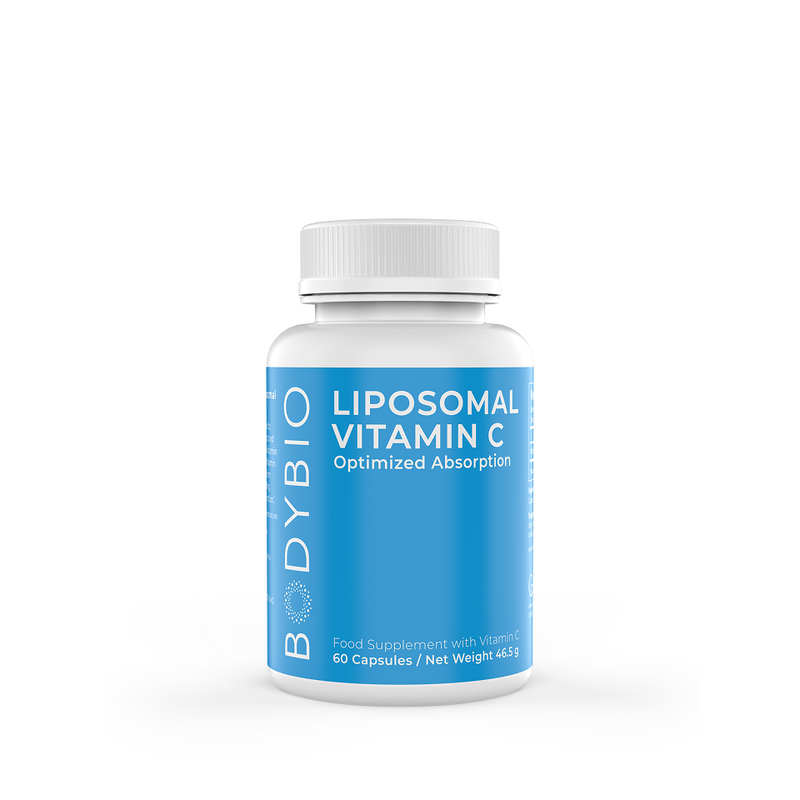What Are Polyphenols?
Key Takeaways:
Key Points:
- Polyphenols are compounds found in plants that provide powerful health benefits to the human body.
- There are over 8,000 different types of polyphenols, and each one provides unique health benefits to the brain, cells, endocrine system, and beyond.
- The best way to get more polyphenols is to include them in your diet. Eat a variety of fruits and veggies, especially those with rich colors. Beverages like coffee, tea, wine, and cocoa are all rich in polyphenols, too.
Powerful Plant Defense Compounds to Boost Your Cellular Health
More convincing reasons to eat hefty servings of colorful fruits and veggies?
Count us in.
Polyphenols are good-for-you compounds (flavonoids, phenolic acid, and polyphenolic amides to name a few) found in plants and plant foods.
They may be most well known by wine and chocolate connoisseurs, who appreciate their health benefits while enjoying delicious chocolate covered strawberries or a vintage red. This is because the presence of polyphenols affects the sweet-to-bitterness scale in these foods.
In all, there are around 8,000 different types of polyphenols (that we know of!).
But new kinds of polyphenols are still being discovered and researched today.
Even with so many different types of polyphenols, there’s one thing they all have in common: they’re fantastic for your cellular health.
Table of Contents:
- What Are Polyphenols?
- Types of Polyphenols
- Are All Polyphenols Good for You?
- Exploring Polyphenol Health Benefits
- Polyphenol Benefits for Your Cellular Health
What Are Polyphenols?
Flavonoids, phenolic acid, lignans, polyphenolic amides, tannins…and more than 8,000 other kinds of polyphenols provide aid to your brain, digestive system, and endocrine system.
So, how do we get polyphenols? They’re released from plants as a defense mechanism against everyday threats that have the potential to harm the plant. For instance, when a plant is exposed to the ultraviolet rays in sunlight, it may release polyphenols to protect itself (even though it also needs the sun to stimulate photosynthesis). During the harvesting process, polyphenols may also be released for the plant’s protection.
Think of this in human terms. When you’re injured, the body sends blood and resources to that area for repair. It’s the same with plants. An injury or pathogen threatens the plant’s life, fight or flight kicks in, these powerful compounds are released, the plant survives, and you get to reap the benefits of this super nutrient by eating your fruits and veggies.
Types of Polyphenols
While all types of polyphenols are good for you, some carry different properties than others. For example, flavonoids are great anti-inflammatories, while tannins are best known for their antioxidant effects.
Flavonoids
Plants and berries with blue, black, and purple colors are known to contain flavonoids. These polyphenols are especially known for their anti-inflammatory properties that can improve blood flow to the brain and promote the growth of new brain cells. Another benefit of this polyphenol? One study shows they could help reverse histamine intolerance.
Tannins
If you’ve heard about tannins before, it’s probably in relation to wine. Tannins affect the bitter-to-sweet ratio in wine, and winemakers work hard to find the perfect balance of tannins for each blend.
For instance, red wines have a higher tannin content than white wines (which might make them healthier). Tannins are known for their antioxidant properties and may be able to lower blood pressure, maintain healthy cholesterol levels, and even prevent tooth decay.
Lignans
A particularly interesting polyphenol, lignans (commonly found in flax seeds) are known for their ability to balance women’s hormones. In particular, lignans are studied for their influence over menopause symptoms. Like other polyphenols, they also contain a rich dose of antioxidants making them a great choice to fend against heart disease, osteoporosis, and more.
Are All Polyphenols Good for You?
The short answer is: yes, all polyphenols are good for you. But not all polyphenols are created equal. If you decide to look into polyphenols for your health, you may notice a number of polyphenol supplements offered to lower inflammation levels and increase brain health.
While these supplements may benefit you, often the best way to absorb the wide range of polyphenol health benefits is to consume them in your diet.
Exploring Polyphenol Health Benefits
Exactly how do polyphenols benefit your health? Here, we’re breaking it down…
Antioxidant Properties
Polyphenols are released when a plant is in distress — as a protective mechanism against harvesting, ultraviolet rays, and pathogens. When consumed, they can benefit us in the same way. Recent studies show polyphenols as a promising defense against UV rays and pollution for humans.
Other benefits of polyphenols include free radical neutralization in the cells, increased heart health, and improved vision.
Brain Health
One benefit of polyphenols is that they’re able to cross the blood-brain barrier. This is extremely beneficial for brain health, as polyphenols can deliver antioxidant and anti-inflammatory support directly to the brain. Some studies even show polyphenols like flavonoids can promote the growth of new brain cells.
Blood Sugar Regulation
Even in healthy adults with no history of diabetes, blood sugar swings can greatly impact long-term health. Stable blood sugar levels protect the heart, kidneys, brain, and endocrine system. One benefit of polyphenols is that they help to seamlessly regulate blood sugar just through eating fruits and vegetables. No medication required.
Digestion Support
Fruits, veggies, and other fibrous foods are already great for balancing and feeding the gut microbiome. But polyphenols provide even more benefits to the gut, by promoting the growth of healthy bacteria and inhibiting the growth of unhealthy bacteria.
Polyphenol Foods: Natural Sources of Polyphenols
Many fruits, vegetables, and herbs offer healthy doses of polyphenols. These are just a few polyphenol foods you can add to your diet:
- Skullcap (an herb that contains 53 polyphenols!)
- Broccoli
- Plantain
- Red clover
- Rosemary or rosmarinic acid
- Berries
- Beans
- Coffee
- Wine
- Chocolate
- Tea
- Olive oil
You can also find polyphenols in supplements, such as luteolin and quercetin. These supplements may be useful for issues such as seasonal allergies and lowering histamine, lowering inflammation, and protecting cardiovascular function.
Polyphenol Benefits for Your Cellular Health
Since polyphenol benefits range across the whole body, it only makes sense that they’d impact your cellular health. The antioxidant abilities of polyphenols, specifically, are powerful resources for your cells (alongside vitamins and minerals). They may be able to defend your cells from free radicals and heal damage caused by toxins and physical trauma.
When consuming more polyphenols in your diet, you may notice less inflammation (which translates to less pain), more energy (thanks to enhanced mitochondria), and less mood swings (from stable blood sugar).
Polyphenols + Vitamins + Minerals = Happy Cells
Speaking of antioxidants, one of our favorites is Vitamin C. This isn’t just a vitamin to boost your immune system during cold season — it does so much more. Vitamin C can protect your cells, increase collagen production, and regulate your mood.
While you’re optimizing your polyphenol intake through polyphenol foods, we recommend supplementing with liposomal vitamin C, so you can get ahead of oxidative stress and feel resilient from a cellular level.
Discover the Power of Antioxidants with BodyBio’s Liposomal Vitamin C!
Pandey, K. B., & Rizvi, S. I. (2009). Plant polyphenols as dietary antioxidants in human health and disease. Oxidative medicine and cellular longevity, 2(5), 270–278. https://doi.org/10.4161/oxim.2.5.9498
Nichols, J. A., & Katiyar, S. K. (2010). Skin photoprotection by natural polyphenols: anti-inflammatory, antioxidant and DNA repair mechanisms. Archives of dermatological research, 302(2), 71–83. https://doi.org/10.1007/s00403-009-1001-3
Shaik, Y., Caraffa, A., Ronconi, G., Lessiani, G., & Conti, P. (2018). Impact of polyphenols on mast cells with special emphasis on the effect of quercetin and luteolin. Central-European journal of immunology, 43(4), 476–481. https://doi.org/10.5114/ceji.2018.81347
Rodríguez-Vera, D., Abad-García, A., Vargas-Mendoza, N., Pinto-Almazán, R., Farfán-García, E. D., Morales-González, J. A., & Soriano-Ursúa, M. A. (2022). Polyphenols as potential enhancers of stem cell therapy against neurodegeneration. Neural regeneration research, 17(10), 2093–2101. https://doi.org/10.4103/1673-5374.335826






